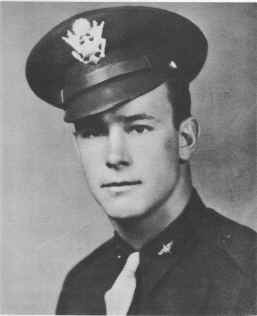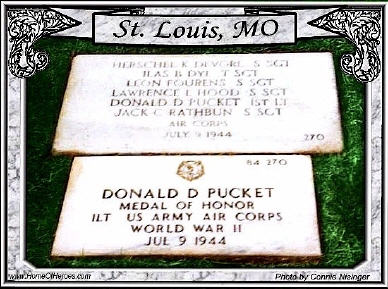 |  |  |
| Romanian Army in the Second World War · Forum Guidelines |
 Help Help
 Search Search
 Members Members
 Calendar Calendar
|
| Welcome Guest ( Log In | Register ) | Resend Validation Email |
| Pages: (105) « First ... 8 9 [10] 11 12 ... Last » ( Go to first unread post ) |    |
| Dénes |
Posted: December 17, 2004 03:34 pm
|
||
|
Admin Group: Admin Posts: 4368 Member No.: 4 Joined: June 17, 2003 |
This map solves a long-lasting debate: the official wartime spelling of the city was PLOESTI, not PLOIESTI, as it's currently spelled. Col. Dénes |
||
| Dénes |
Posted: December 17, 2004 03:50 pm
|
||
|
Admin Group: Admin Posts: 4368 Member No.: 4 Joined: June 17, 2003 |
What is the emblem seen on the fuselage side, in front of the cockpit? Col. Dénes This post has been edited by Dénes on December 17, 2004 03:50 pm |
||
| Victor |
Posted: December 17, 2004 03:52 pm
|
|
Admin Group: Admin Posts: 4350 Member No.: 3 Joined: February 11, 2003 |
It's Bambi, I believe.
|
| Dénes |
Posted: December 17, 2004 03:57 pm
|
||
|
Admin Group: Admin Posts: 4368 Member No.: 4 Joined: June 17, 2003 |
That's debatable. In my view, only the factory codes (Stammkennzeichen), or the previous Luftwaffe unit's tactical number, as well as the fuselage Balkenkreuz was painted over with either green, or grey. The engine cowling also received a coat of paint, to cover a previous emblem, or a yellow colour. The standard Luftwaffe grey camouflage scheme (RLM 74/75/76) was retained. Check out another photo of 'White 1', published in my Osprey book on ARR fighter pilots, page 38, bottom. Col. Dénes This post has been edited by Dénes on December 17, 2004 03:59 pm |
||
| Dénes |
Posted: December 17, 2004 04:03 pm
|
||
|
Admin Group: Admin Posts: 4368 Member No.: 4 Joined: June 17, 2003 |
Is that documented? This is the first time I see Anastasescu's mount with any sort of emblem. Col. Dénes |
||
| Victor |
Posted: December 17, 2004 04:29 pm
|
|
Admin Group: Admin Posts: 4350 Member No.: 3 Joined: February 11, 2003 |
No, it isn't documented. When I discussed with Artur about the diorama some years ago, I mentioned the "Bambi" emblem used by the 6th Fighter Group (as I thought back then).
|
| D13-th_Mytzu |
Posted: December 17, 2004 05:11 pm
|
|
General de brigada Group: Members Posts: 1058 Member No.: 328 Joined: August 20, 2004 |
Please excuse my ignorance - but where is the National Museum and what does it have on display ?
|
| alexkdl |
Posted: December 17, 2004 05:23 pm
|
|
General de corp de armata Group: Banned Posts: 1809 Member No.: 373 Joined: October 22, 2004 |
Cantacuzino
Here are some more interesting photos and topics about tidalwave. Bellow is the Congressional Medal of Honour Citation of Second Lieutenant Lloyd H. Hughes, Air Corps, United States Army for his bravery at Ploesti. Sources...his family ablum and Wright Patterson AFB , OH. His plane at Ploesti was EAGER EAGLES For conspicuous gallantry in action and intrepidity at the risk of his life above and beyond the call of duty. On 1 August 1943 Lieutenant Hughes served in the capacity of pilot of a heavy bombardment aircraft participating in a long and hazardous minimum altitude attack against the Axis oil refineries of Ploesti, Rumania, launched from the northern shores of Africa. Flying in the last formation to attack the target, he arrived in the target area after previous flights had thoroughly alerted the enemy defenses. Approaching the target through intense and accurate antiaircraft fire and dense balloon barrages at dangerously low altitude, his airplane received several direct hits from both large and small caliber antiaircraft guns which seriously damaged his aircraft, causing sheets of escaping gasoline to stream from the bomb bay and from the left wing. This damage was inflicted at a time prior to reaching the target when Lieutenant Hughes could have made a forced landing in any of the grain fields readily available at that time. The target area was blazing with burning oil tanks and damaged refinery installations from which flames leaped high above the bombing level of the formation. Will full knowledge of the consequences of entering this blazing inferno when his airplane was profusely leaking gasoline in two separate locations, Lieutenant Hughes, motivated only by his high conception of duty which called for the destruction of his assigned target at any cost, did not elect to make a forced landing or turn back from the attack. Instead, rather than jeopardize the formation and the success of the attack, he unhesitatingly entered the blazing area and dropped his bomb load with great precision. After successfully bombing the objective, his aircraft emerged from the conflagration with the left wing aflame. Only then did he attempt a forced landing, but because of the advanced stage of the fire enveloping his aircraft, the airplane crashed and was consumed. By Lieutenant Hughes' heroic decision to complete his mission regardless of the consequences, in utter disregard for his own life, and by his gallant and valorous execution of this decision, he rendered a service to our country in the defeat of our enemies which will be everlastingly outstanding in the annals of our nation's This post has been edited by alexkdl on December 17, 2004 05:45 pm Attached Image  |
| Victor |
Posted: December 17, 2004 09:16 pm
|
||
|
Admin Group: Admin Posts: 4350 Member No.: 3 Joined: February 11, 2003 |
Cantacuzino is referring to the National History Museum, which is located on the Calea Victoriei, opposite the CEC Building. |
||
| alexkdl |
Posted: December 17, 2004 09:26 pm
|
|
General de corp de armata Group: Banned Posts: 1809 Member No.: 373 Joined: October 22, 2004 |
"Hell's Wench," a B-24 badly damaged by anti-aircraft artillery fire, led the 93rd Bombardment Group (Heavy) in its daring low-level attack on the oil refineries at Ploesti, Romania, which supplied two-thirds of Germany's petroleum production at that stage of World War II. Lt. Col. Addison E. Baker, an Ohio National Guardsman who commanded the 93rd, ignored the fact he was flying over terrain suitable for safe landing. He refused to break up the lead formation by landing, and led his group to the target upon which he dropped his bombs with devastating effect. Then he left the formation, but his valiant attempts to gain enough altitude for the crew to escape by parachute failed and the aircraft crashed. For their gallant leadership and extraordinary flying skill, both Baker and his pilot, Maj. John L. Jerstad, received the Medal of Honor, posthumously. The raid, nicknamed "Operation Tidalwave," was costly, with 54 of the 177 bombers lost and 532 of the 1,726 personnel engaged listed as dead, missing or interned. Baker's service epitomized the role of National Guard aviators during World War II. Because of their experience, most of them were transferred from their 29 pre-war observation squadrons after mobilization. As individuals, they helped train and lead the huge numbers of volunteer airmen who served in Army Air Force units during the war.Courtesy 44th Bmb Grp
This post has been edited by Victor on December 24, 2005 08:33 am |
| alexkdl |
Posted: December 17, 2004 09:42 pm
|
|
General de corp de armata Group: Banned Posts: 1809 Member No.: 373 Joined: October 22, 2004 |
This plane took part in the 93rd Bomb Group's first mission on 9 Oct
1942 and was shot up so badly it was going to be used for parts, however it was put back into flying condition and went on to become the first 8th Air Force B-24 to complete 50 missions, including Ploesti, and in fact did go on to 53 after being flown by three different assigned crews. On 4 Apr 1944, Walt Stewart flew it back to the states with a picked crew of guys from all four 93rd squadrons who had completed their missions and went on to do a war bond tour Courtesy 93rd This post has been edited by Victor on December 24, 2005 08:33 am |
| alexkdl |
Posted: December 17, 2004 10:02 pm
|
|
General de corp de armata Group: Banned Posts: 1809 Member No.: 373 Joined: October 22, 2004 |
As the first wave of bombers roared into the target, some as low as 50 feet, the German defenses opened up with a barrage of fire. Within moments the entire area erupted with exploding bombs, bursting shells, gushing flames and billowing palls of smoke. One by one the gallant crews took their aircraft through the intense wall of Ack-Ack and 88mm ground fire, and into the burning inferno to deliver their deadly cargo
44th Bmb Grp |
| D13-th_Mytzu |
Posted: December 17, 2004 10:44 pm
|
||
|
General de brigada Group: Members Posts: 1058 Member No.: 328 Joined: August 20, 2004 |
Thanks Victor ! I must pay it a visit - shame on me I didn't do it untill now. Alex fantastic material !! Thank you for sharing ! |
||
| Armada |
Posted: December 17, 2004 11:16 pm
|
|
Soldat Group: Banned Posts: 2 Member No.: 421 Joined: December 17, 2004 |
Tereffic posts, very very interesting !!! Please keep posting
Dave This post has been edited by Armada on December 17, 2004 11:16 pm |
| alexkdl |
Posted: December 18, 2004 12:21 pm
|
|
General de corp de armata Group: Banned Posts: 1809 Member No.: 373 Joined: October 22, 2004 |
Mytzu many thanks for your comments , I have finally found the grave site in Missouri of the 5th Congressional Medal of Honour awardee at Ploesti , Lt Donald Pucket who didnt enjoy so much publicity as Kane, Johnson, Baker, Jerstad and Hughes , he and his crew died over the same target in jULY 1944
Donald Dale Pucket First Lieutenant, US Army Air Corps Born: December 19, 1915 at Longmont, CO Entered Service: Boulder, CO Date/Place of Action: July 09, 1944 - Ploesti, Rumania Unit: 343d Bombardment Squadron, 98th Bombbardment Group, 8th Air Force Presentation: G.O. 48 - June 23, 1945 Date of Death: July 09, 1944 (Killed In Action) Buried at: Jefferson Barracks National Cemetery - St. Louis, MO Alex This post has been edited by alexkdl on December 18, 2004 12:38 pm Attached Image  |
0 User(s) are reading this topic (0 Guests and 0 Anonymous Users)
0 Members:
 Pages: (105) « First ... 8 9 [10] 11 12 ... Last »
Pages: (105) « First ... 8 9 [10] 11 12 ... Last » |
   |
[ Script Execution time: 0.0191 ] [ 14 queries used ] [ GZIP Enabled ]
Powered by Invision Power Board(U) v1.3.1 Final © 2003 IPS, Inc.





